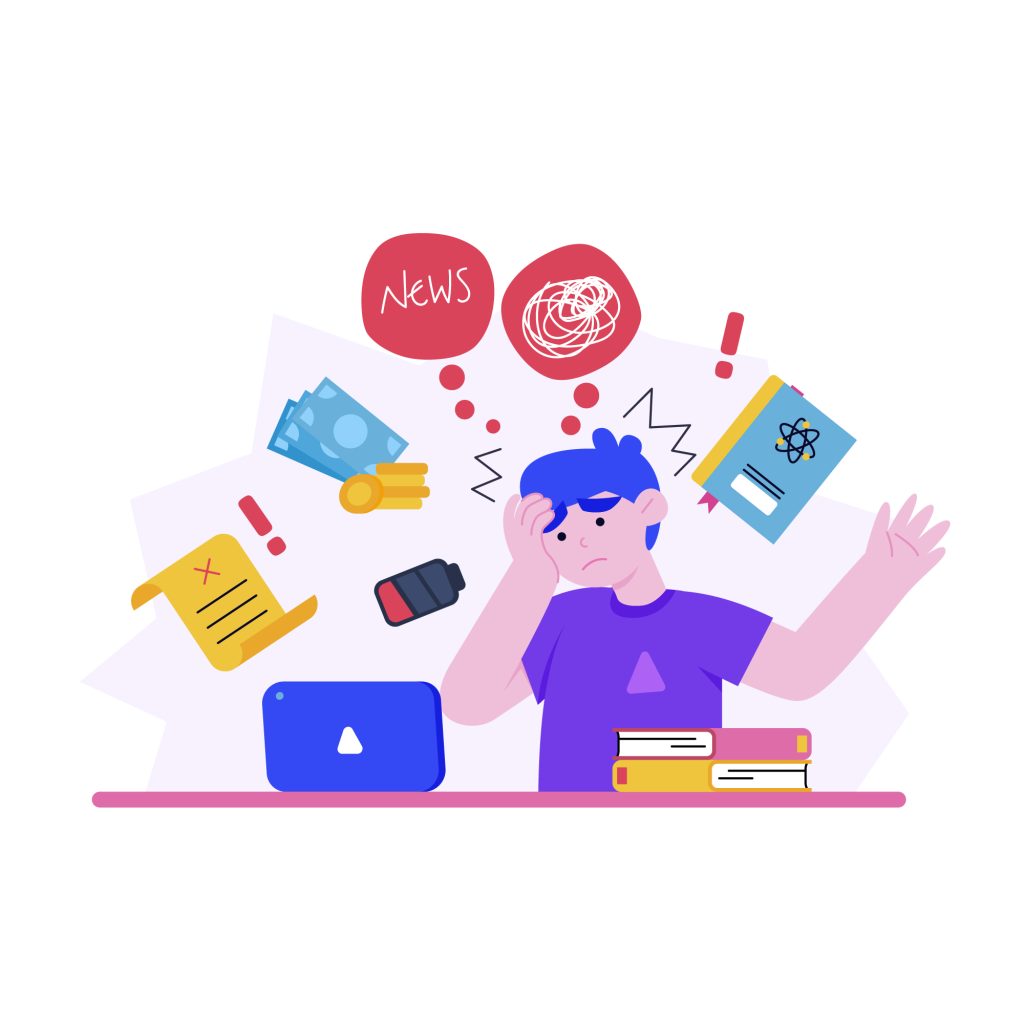In today’s fast-paced world, multitasking has become a common practice for many. Whether responding to emails while attending a meeting or checking social media during work, the idea of doing several things at once is often seen as a way to boost productivity. However, understanding what happens to your brain when you multitask reveals that this habit might not be as beneficial as it seems. This article explores how multitasking affects the brain, the science behind it, and practical advice on managing tasks effectively.

The Effects of Your Brain when you Multitask
When we multitask, our brains are not truly performing multiple tasks simultaneously. Instead, the brain switches rapidly between tasks. This process, known as task switching, consumes cognitive resources and can impact mental performance.
- Cognitive Load Increases: The brain has a limited capacity to process information. When multitasking, it must divide its attention, increasing cognitive load and reducing efficiency.
- Decreased Focus: Switching tasks interrupts the brain’s focus, causing slower information processing and more errors.
- Memory Impairment: Multitasking can negatively affect working memory, making it harder to retain and recall information.
A 2009 study published in the Proceedings of the National Academy of Sciences found that frequent multitaskers had difficulty filtering irrelevant information and showed reduced cognitive control. This suggests multitasking may impair the brain’s ability to focus on important tasks.
The Neuroscience Behind Multitasking
The prefrontal cortex, responsible for decision-making and attention control, plays a key role during multitasking. When switching between tasks, this area works overtime to reorient focus and manage conflicting demands.
However, research indicates that multitasking overloads this part of the brain, leading to decreased performance. Neuroscientists have observed reduced activity in the prefrontal cortex during rapid task-switching, which correlates with reduced effectiveness in completing tasks (Rubinstein, Meyer & Evans, 2001).
Its Impact on Mental Health and doing Multitask
The consequences of frequent multitasking extend beyond productivity. Several studies link chronic multitasking to increased stress and anxiety levels. Constantly shifting focus can create mental fatigue and feelings of being overwhelmed.
Moreover, multitasking reduces the quality of interactions and may affect emotional well-being, especially in social or learning environments. For example, multitasking during conversations can impair empathy and connection, essential components of mental health.
Why Multitasking Is Not Efficient?
Although multitasking can feel like accomplishing more in less time, it often leads to:
- Lower Quality Work: Errors and oversights increase.
- Longer Completion Times: The brain needs extra time to refocus after each switch.
- Reduced Creativity: Constant task-switching hampers deep thinking and problem-solving.
An important 2005 study in Journal of Experimental Psychology found that multitasking can reduce productivity by as much as 40%, highlighting that the brain’s natural design favors focused attention rather than divided focus.
Practical Tips to Improve Focus and Do Multitask
Since multitasking is often unavoidable, here are some strategies to minimize its negative impact:
- Prioritize Tasks: Identify important tasks and focus on completing one before moving to the next.
- Set Specific Time Blocks: Allocate dedicated time periods for different activities, avoiding task switching.
- Limit Distractions: Turn off non-essential notifications and create an environment conducive to focus.
- Practice Mindfulness: Techniques like meditation can improve attention span and reduce the urge to multitask.
- Use Technology Wisely: Utilize apps designed to help schedule tasks and block distracting sites.
The Growing Trend of Single-Tasking
In contrast to multitasking, single-tasking—or monotasking—is gaining attention as a more effective way to work and learn. Many organizations now encourage focused work periods to enhance productivity and mental clarity.
Recent studies show that single-tasking improves task accuracy and reduces cognitive fatigue. For example, a 2020 article in Frontiers in Psychology discusses how single-tasking supports sustained attention and better memory retention.
Conclusion
Understanding what happens to your brain when you multitask helps clarify why this habit may be less productive than it appears. Multitasking taxes the brain’s resources, reduces focus, and impacts mental health. By recognizing these effects and adopting strategies that promote focused work, individuals can improve both productivity and well-being.
References
- Ophir, E., Nass, C., & Wagner, A. D. (2009). Cognitive control in media multitaskers. Proceedings of the National Academy of Sciences, 106(37), 15583-15587.
- Rubinstein, J. S., Meyer, D. E., & Evans, J. E. (2001). Executive control of cognitive processes in task switching. Journal of Experimental Psychology: Human Perception and Performance, 27(4), 763–797.
- Szameitat, A. J., Brzezicka, A., & Flynn, K. (2020). Cognitive costs of multitasking: A neuroimaging study of task switching and dual-tasking. Frontiers in Psychology, 11, 1020.






